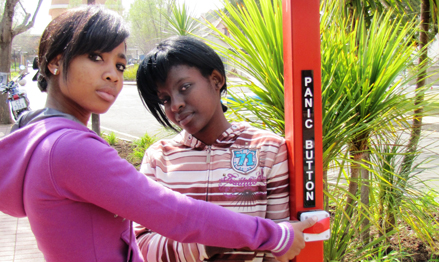Latest News Archive
Please select Category, Year, and then Month to display items
11 January 2021
|
Story André Damons
|
Photo Supplied
 Dr Ralph Clark
Dr Ralph Clark
The Afromontane Research Unit (ARU), the flagship research group of the University of the Free State (UFS) Qwaqwa Campus, has recently been granted R8,4 million to establish a Risk and Vulnerability Science Centre programme.
The Risk and Vulnerability Science Centre (RVSC) programme was established by the Department of Science and Innovation (DSI) as part of the Global Change Research Plan for South Africa and is funded by the DSI through the National Research Foundation (NRF). The RVSC will focus on the need to generate and disseminate knowledge about risk and vulnerability on global change challenges faced by local policy makers/ governance structures and communities in South Africa.
Invited to participate
Dr Ralph Clark, Director of the ARU, says the UFS, together with the University of Zululand and the Sol Plaatje University, has been invited to participate in Phase 2 of the RVSC programme. Dr Clark was approached by the DSI (on referral from the South African Environmental Observation Network – SAEON) in February 2020 regarding the potential for establishing a RVSC at the UFS Qwaqwa campus.
Subsequent interactions were held between the UFS and DSI, and in March 2020, the UFS formally accepted the DSI invitation. It has since been agreed that the RVSC: UFS will be hosted as a RVSC under the ARU umbrella, with dedicated personnel embedded at the UFS in this regard (internal processes and reporting) but reporting directly to the NRF regarding the RVSC.
Interest and support welcomed
Dr Clark welcomed this interest and support from the DSI-NRF, saying that the funds will further assist the UFS in growing its excellent and growing research portfolio and building more research capacity on this traditionally undergraduate-focused campus. “The RVSC will contribute to much-needed solutions in an area marked by major sustainability challenges and will assist in moving Phuthaditjhaba away from its negative apartheid history towards becoming a sustainable African mountain city,” says Dr Clark.
UFS a much safer place
2011-09-20
|

|
First-year students Chuma Nyiko (left) and Mabasa Teleni next to one of the red poles installed on our Bloemfontein Campus.
Photo: Amanda Tongha |
Students and staff at our Bloemfontein Campus can feel even safer, with several initiatives being put in place to ensure their safety.
The stop-and-search actions of the recent past, which are being carried out at all the main gates of our Bloemfontein Campus, seem to be successful, since car theft has decreased on the campus. Mr Willie Frankim, Head of Protection Services, says the stop-and-search actions are carried out sporadically, but have a definite effect on crime at the campus. Mr Frankim says only one vehicle has been stolen in the past two months as opposed to the many more that have been stolen in the past.
The message that safety is viewed in a serious light reaches as far as our university’s parking areas and walkways, which are being patrolled by security staff. Mr Frankim says a security officer is placed in all the large parking areas, while other personnel are distributed across the entire campus, especially at key areas, such as at the library and student centre.
Our university also recently installed more than 30 red poles across the entire campus. Each of these red poles is fitted with a panic button by means of which help can be summoned. Should a student or staff member feel unsafe, all they have to do is press the button and cameras, which are installed in the vicinity, will focus on the pole and Protection Services will send assistance. Twenty five of these poles are already working and ten more still have to be activated.
Students and staff can also phone Protection Services on 051 401 2911 if they feel uncomfortable about their safety. They can use this number, for example, to ask a security officer to accompany them to their car.